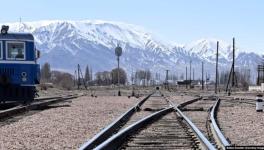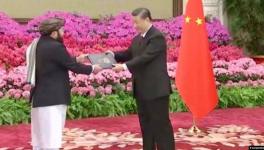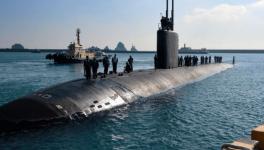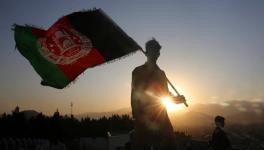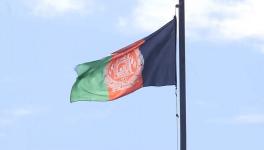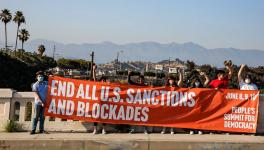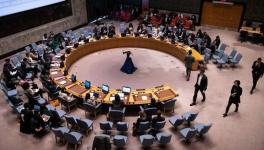On the Legal Recognition of the New Taliban Government in Afghanistan Within International Order
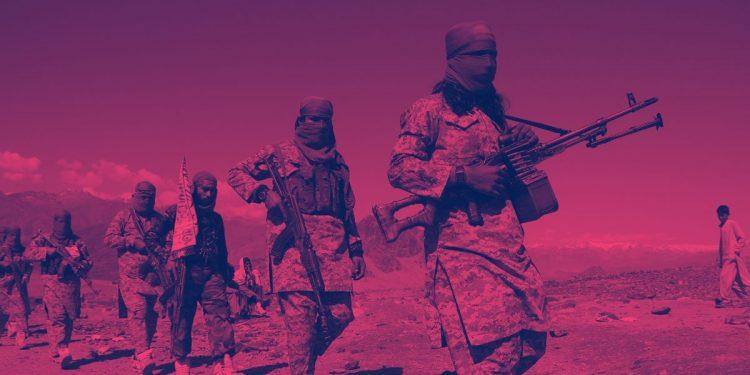
Recounting the various iterations of the State of Afghanistan in its modern political history, MOHAN V. KATARKI explains how, if at all, the new de facto Taliban-run government in Afghanistan could be legally recognised by the international community.
—–
Upon the withdrawal of American military forces from the territory of Afghanistan, Kabul has been overrun by Taliban, an insurgent militant Islamist outfit that was biding its time in the mountains of Afghanistan for the last two decades.
The defenseless Afghanis are seen rushing to the international airport in Kabul, which is the last post held by the departing Americans. Many who didn’t get the chance to board are seen helplessly trying to cling on to the gearbox of the aircraft in heart-breaking viral videos. It is an indicator of the unprecedented fear which is brewing among the moderates in Afghanistan, who lived under American protection for last two decades.
The fall of Kabul is more or less complete, but what may unfold in the coming days or weeks is generally projected as uncertain. However, if one carefully looks into the past, the international community cannot be said to be in the dark!
Political history of Afghanistan
According to the book, ‘The Creation of States in International Law’, governments may change or the internal legal regime maybe get replaced, but the State as an entity continues. The author, international law professor James R. Crawford, writes that “the rule that the overthrow of a government system does not affect the continuity of the State in which it occurs has been consistently applied to the innumerable revolutions, coup d’etat and the likes in the nineteenth and twentieth centuries”. Crawford refers to the acceptance of continuity of State in the case of the establishment of the Soviet Union after the ‘October Revolution’ in 1917, and in Iran after the Islamic revolution in 1978.
The extinction of a State may occur in the eyes of international law when the territory or population undergoes changes, and/or the legal order changes, Crawford posits in another book, ‘Brownlie’s Principles of Public International Law’. However, despite its history of tumultuous political changes, Afghanistan has continued as a State for several centuries without losing its identity, though it has frequently changed its constitution and even its appellation from Emirate to Kingdom to Republic to Islamic State. Hopefully, the identity of Afghanistan will continue to endure in the coming decades.
Afghanistan was founded much before the advent of the modern world. Since then, it has survived in Kabul even though it has witnessed a succession of regime changes, some of them raising challenges to international law.
History has recorded that the Safavid dynasty of Persian Shia Muslims ruled central Asia, including Afghanistan, throughout the 16th and 17th centuries. The Pashtun Ghilji tribe, whose members are Sunni Muslims, revolted against the Safavid’s brutal Governor Gurgin Khan, a Georgian monarch, and established their own empire under the Hotak dynasty in 1709.
The Hotaks ruled over portions of Afghanistan and Iran, before being stormed by the Persian emperor Nadir Shah, with Afghanistan falling under control of Shah’s Turkoman Afshar tribe. However, following Shah’s assassination in 1747, and capitalising on the disunity among the numerous Afghan tribes, Ahmad Shah Abdali, a commander of Shah and a member of the Pashtun Durrani tribe, firmly established the Durrani dynasty. As the Durrani dynasty weakened towards the end of the 18th century and the beginning of the 19th century, the Afghan Emirate under the Barakzai tribe emerged in 1829.
The Great Game
The geopolitical importance of Afghanistan in Central Asia invited the attention of European imperialists in the 19th century, which continues till date. The British suspected the imperial interest of Russian Tzars in their colony of India. A long political and diplomatic confrontation between the Russian and British empires ensued, known as “The Great Game”, a phrase that caught popularity due to Rudyard Kipling’s novel ‘Kim’.
The suspicion and distrust forced the British to adopt a precautionary step to control Afghanistan by waging the first Anglo-Afghan war in 1838-42. Though the British annexed Kabul, it was a short-lived victory. The Afghans gave a bloody nose to British, who were eventually forced to withdraw from Afghanistan.
Even then, the British launched the second Anglo-Afghan war in 1878, which bore fruits to its long-standing plans. Afghanistan became a protectorate of Britain in 1880. With this political development and consolidation of the British in India, Russian Tzars lost further interest in Afghanistan.
However, decades later, the secured British Empire relinquished its sovereignty over Afghanistan at the conclusion of the third Anglo-Afghan war under the Anglo-Afghan treaty of August 1919 (amended in 1921). This is when Afghanistan was also recognized as a sovereign state by the international community. August 19 is celebrated in Afghanistan as its Independence Day.
After witnessing a civil war in 1928 and 1929 that led to the deposition of the first King of Afghanistan, Amanullah Khan, Afghanistan witnessed a period of relative political stability, especially under the four-decade rule of King Mohammed Zahir Shah. His regime heralded modernisation, and brought peace and progress to Afghanistan.
But as an old adage goes: in politics, nothing is permanent. In 1973, Zahir Shah was deposed by his cousin Mohammad Daud Khan, establishing the Republic of Afghanistan and bringing an end to over two centuries of monarchy in a bloodless coup.
Cold War theatre
But, the cousin’s dream was short-lived. The geopolitical importance of Afghanistan in Central Asia couldn’t have left the Soviet Union to ignore its vital interests in the country. The Saur Revolution of 1978 by the People’s Democratic Party of Afghanistan (PDPA), a Marxist-Leninist political party, overthrew and killed Daud Khan. PDPA established the ‘Democratic Republic of Afghanistan’, with the Soviet-aligned Nur Muhammad Taraki as President. However, the communist regime faced bitter opposition from the deeply religious Afghan tribes.
The very next year, the Soviet Army moved into Afghanistan to support the PDPA government against public rebellion. In retaliation, the United States of America and its allies supported the Afghani tribal rebel groups, collectively known as the Afghan Mujahideen, with arms and money to rise up and wage a holy war. The The Great Game, which was forgotten after the second Anglo-Afghan war in 1878, was reincarnated, as Afghanistan became the theatre for the Cold War between the U.S.A. and the Soviet Union.
The contested Soviet-backed regime in Afghanistan didn’t find fuller recognition of the international community.
Soon after the collapse of Soviet Union, the Soviet backed regime in Afghanistan tattered. The Mujahideens forged an accord known as the ‘Peshawar Accord’ on 26th April, 1992, which led to the establishment of the ‘Islamic State of Afghanistan’. However, due to the inability of the different Mujahideen factions to arrive at a power-sharing arrangement, there was no stable government, and the country descended into lawlessness and civil war.
At this stage, the Taliban, founded in 1994 as a militia group, and supported by Pakistan and the al-Qaeda, seized Kabul in 1996, and established the ‘Islamic Emirate of Afghanistan’. This Taliban regime failed to muster any acceptability in the international community or in international law. Except Pakistan, Saudi Arabia and the United Arab Emirates, who had propped up Taliban, no country formally recognised the creation of new regime under the banner of ‘Islamic Emirate of Afghanistan’. In fact, most of the regimes post that of King Mohammad Zahir Shah did not muster much acceptability in international law.
The Taliban, which grabbed power during the political vacuum in 1996 and ran its writ over 90% of Afghan territory, is imbued with fundamentalist Islamic ideas. It operated an illiberal, totalitarian and theocratic state based on a strict interpretation of sharia law as per the Hanafi school of Islamic jurisprudence.
War on Terror
Meanwhile, the September 11, 2001 attack on the U.S.A. marked a major international event that nearly paralysed the international security. U.S.A. declared the War on Terror, and invaded Afghanistan in order to drive out the Taliban, which had allegedly been providing a safe haven to al-Qaeda, the mastermind of the September 11 attacks.
Between October and December 2001, the U.S.A. and its allies, along with the Afghan North Alliance, a military front that had been engaged in armed conflict with the Taliban since 1996, drove out the Taliban from power.
Following the Taliban’s ouster, Afghan civilian leaders met at Bonn in Germany to establish a new provisional government and replace the Taliban regime. On 5th December 2001, the ‘Afghanistan-Bonn Agreement’ was signed by prominent Afghan leaders which inter alia established the ‘International Security Assistance Force’ (ISAF), a military mission comprising of personnel from 40 countries. The United Nations (UN) Security Council, via its Resolution 1386, invested legal authority in the ISAF to assist the Afghan interim authority in the maintenance of security in the country.
As agreed under the Bonn Accord, a Loya Jirga, or a Pashtun legal assembly, was required to be convened to establish a permanent government and Constitution in Afghanistan. It was chaired by the last Afghan king, Zahir Shah. The opinion of the international community was that King Zahir Shah alone had the sovereign authority to govern Afghanistan.
His removal in 1973, and the subsequent political changes forced by the Saur Revolution in 1978, the Peshawar Accord in 1992 and in particular, the grabbing of power by the Taliban in 1996, were all termed illegal in the international community.
The Loya Jirga met from 11th to 19th June, 2002 in Kabul, and deliberated. A transitional government of Afghanistan for a period of two years under the Presidency of Hamid Karzai was finally set up.
The Afghanistan Constitution Commission constituted pursuant to the Bonn Accord of 2001 framed the Afghan Constitution, which was adopted in 2004, establishing a new regime under the name of ‘Islamic Republic of Afghanistan’. Karzai was elected as the first President by popular vote in 2004. He was succeeded by Ashraf Ghani in 2014.
However, consequent to the beginning of the withdrawal of their military forces (9,592 troops in February 2021) by the U.S.A. and its allies from May 2021 onwards, ending its military program under the banner of ‘Operation Freedom’s Sentinel’, as well as the North Atlantic Treaty Organisation’s ‘Resolute Support Mission’, the gun-toting Taliban insurgents rapidly came on the scene from their hiding, and took over major Afghan cities one by one, often without any resistance.
Unfortunately, the supposedly 3,00,0000-strong Afghan National Security Forces, trained by the U.S.A. at a cost of about $87 billion since 2001, folded rather meekly in the face of the Taliban offensive.
Finally, with fall of Kabul on August 15, 2021, the national government of Ghani has gone into exile. The Taliban has re-declared the Islamic Emirate of Afghanistan, and has become the de facto regime in Afghanistan for the second time after its rule in the period of 1996-2001.
What Next?
The question in the minds of members of the international community is – what to expect next in the ‘graveyard of empires’. The Taliban’s Islamic Emirate of Afghanistan has indisputably taken control of the country, and with the fall of Kabul on August 15, its de facto governance of Afghanistan is a foregone conclusion. However, what awaits is de jure recognition by the international community.
But, it seems, this is a mere formality unless the Taliban goes back on its word. This is because the entire spectacle, from the withdrawal of forces to the overthrow of Ghani’s government, has been a part of a written deal. The deal in question is the agreement that the U.S.A. signed on February 29, 2020 with Taliban at Doha in Qatar (‘Agreement for Bringing Peace in Afghanistan’) describing a “future political roadmap of Afghanistan”. Under this deal, the U.S.A. committed to “withdraw all forces from five (5) military bases” within 135 days, and complete withdrawal within nine and half months.
It sounds strange that the U.S.A. government entered into an agreement with the Taliban, which was antithetical to the established government of President Ghani. Does it not amount to interference in the internal affairs of Afghanistan?
The agreement refers to the “Islamic Emirate of Afghanistan which is not recognised by the United States of America as a state”, which is as good as saying “we will recognise you once you grab Afghanistan”.
As per the Doha deal, the Taliban had agreed to eschew violence. But, do these words have any meaning to the gun toting Talibanese?
De jure Recognition of the Islamic Emirate of Afghanistan
Under Article 1 of the Montevideo Convention on the Rights and Duties of States, in order to acquire recognition, a state must have a permanent population, a defined territory under its control, which is governed by a particular government, and must have the capacity to enter into relations with other states.
However, even if the state meets these essential criteria, it does not automatically get recognised as a state.
Under international law, there exist two modes of state recognition that confer legitimacy upon the said state, namely, de facto recognition and de jure recognition.
De Facto recognition of the state takes place when there is a temporary and factual recognition of the State. It refers to the recognition of newly formed states through non-committal acts by certain states. States which have de facto recognition are neither universally acknowledged as states, even though they might possess the essentials for being recognised as one, nor are they members of multilateral or international organisations, since the global community as a whole refuses to recognise them.
Such recognition can be revoked at any given point in time.
On the other hand, de jure recognition is legal recognition of states granted when the said state satisfies the essentials of a state as provided for under Article 1 of the Montevideo Convention, along with stability, sufficient control and permanency. While de facto recognition is conditional, de jure recognition is non-conditional, final and irrevocable.
Once recognised de jure, a state has absolute rights and obligations against other states.
In the context of the Islamic Emirate of Afghanistan, in addition to possessing the essential criteria mentioned in Article 1 of the Montevideo Convention, the takeover by the Taliban must be accepted as lawful by the member states of the global community in order to acquire legitimate de jure recognition.
In the final analysis, though the Islamic Emirate of Afghanistan has acquired de facto recognition from the U.S.A. by virtue of the Doha Agreement, its de jure recognition will depend on recognition by the family of nations as a State as such in International law.
On August 12, representatives from China, Pakistan, India, Uzbekistan, Tajikistan, Turkmenistan, Turkey, Qatar, U.S.A., U.K., Germany, the European Union, Norway and U.N. met at a regional conclave in Qatar, where they decided that they will not recognise any government in Afghanistan that is imposed through military force.
Since the Talibani takeover, however, Pakistan has referred to the Islamic Republic of Afghanistan as a “defunct regime”, and its Prime Minister Imran Khan described the Taliban’s conquest of Kabul as “Afghans hav[ing] broken the shackles of slavery”. Meanwhile, Bangladesh and China have also expressed the intent to eventually recognize the Taliban government.
It remains to be seen what the rest of the global community will do.
Meanwhile, the problem of thousands of Afghan refugees is staring us in the face, waiting to be addressed by the global community.
(Mohan V. Katarki is a Senior Advocate at the Supreme Court. The views expressed are personal.)
Get the latest reports & analysis with people's perspective on Protests, movements & deep analytical videos, discussions of the current affairs in your Telegram app. Subscribe to NewsClick's Telegram channel & get Real-Time updates on stories, as they get published on our website.









